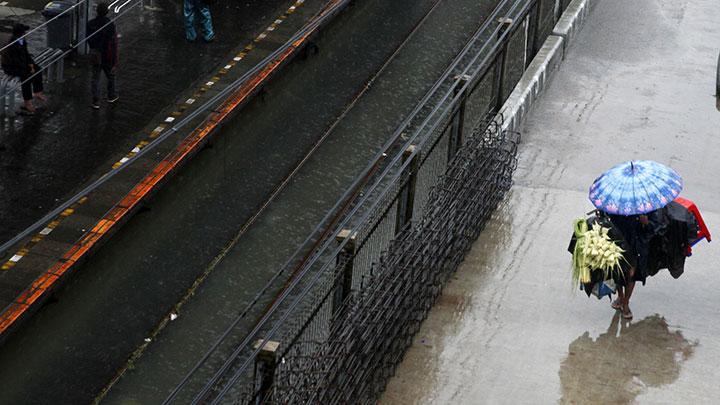Change Driver Behavior to Beat Jakarta's Traffic Jams
Translator
Editor
Laila Afifa
Jumat, 17 Februari 2023 10:42 WIB

By: Alvinsyah, a lecturer in the Faculty of Engineering, Department of Civil Engineering at the University of Indonesia (UI) Depok.
The relaxation of COVID policies adds momentum to tightening Jakarta’s traffic policy. Parking management might help if the public plays along.
Jakarta’s insufferable congestion problems are legendary. The city is ranked 10th worst in the world by the traffic Index and drivers lost an average of 123 hours a year to sitting in jams, according to Tomtom.
Clearly, the situation must change. Building more roads and highways is unsustainable. Applying a properly thought-out Travel/Transport Demand Management (TDM) could be the way out.
There are many ways to implement a Travel Demand Management strategy, including parking management, progressive vehicle taxes, and other tax incentives, tighter regulations on vehicle ownership, transportation cost compensation, changing work hours, reducing the number of working days, teleworking, implementing restricted traffic corridors and restricted areas, ridesharing (carpool/vanpool), priority and promotion for public transport, better transport integration and applying mass transit-oriented development.
Travel Demand Management is relatively cheap, has a direct effect on patterns of people’s activities, and limits people’s mobility. The essence of this approach is managing the trip makers (i.e., people) themselves.
Therefore, solving the transportation dilemma requires more than just providing infrastructure, because the transportation issue is a political, not a technical issue, which means the solution lies in changing behaviors, not necessarily infrastructure and technology.
One strategy which has been floated since the easing of COVID restrictions has been electronic road pricing or ERP which was planned in 2012 but not implemented due to strong opposition and legal dispute.
Efforts to implement a Travel Demand Management policy began in 1992 when Jakarta hosted the Non-Aligned Movement Summit. The city government adopted high occupancy vehicle corridors. In 2016, came the odd-even plate policy.
The City of Jakarta already has a plan and has implemented several strategies, which have been piecemeal and uncoordinated due to separate legal frameworks for several sectors.
The revised Jakarta 2030 detailed land-use plan (unpublished but seen by the author) covers the concept of limiting parking spaces, designation of high parking fee areas, and applying incentives and disincentives for urban area development. In the revised Jakarta 2030 Spatial Plan (unpublished but seen by the author), the vision of Jakarta's development has been set to manage urban growth. For transport, the focus is on increasing urban mobility and area access. The highest priority has been focused on pedestrian and non-motorized transport; private cars are a low priority.
The challenge now is to synchronize all these plans related to Travel Demand Management from different sectors and merge them into one integrated package policy.
Parking management policies, such as limiting parking space and making parking expensive have been in place for decades. While benefits include increased revenues, reduced traffic problems, optimizing the use of space, and reduced congestion, the reality is the city government has treated it only as a source of revenue and traffic management.
Parking pricing is considered to be the second-best alternative to road pricing. Since road pricing has hit numerous roadblocks mainly due to opposition, parking pricing is an alternative solution. It’s easier to implement because people are more familiar with and accustomed to paying for parking.
For congestion policy to succeed, there needs to be compliance to institutional, legal, and public transport systems along with monetary incentives and coordination between sectors and institutions.
The key to the success of urban transportation policies depends heavily on the leadership and "action-will" (not just political will) from the government at the city and national levels. And Jakartans could help by using public transport and fewer private cars.
Originally published under Creative Commons by 360info™.
*) DISCLAIMER
Articles published in the “Your Views & Stories” section of en.tempo.co website are personal opinions written by third parties, and cannot be related or attributed to en.tempo.co’s official stance.




















